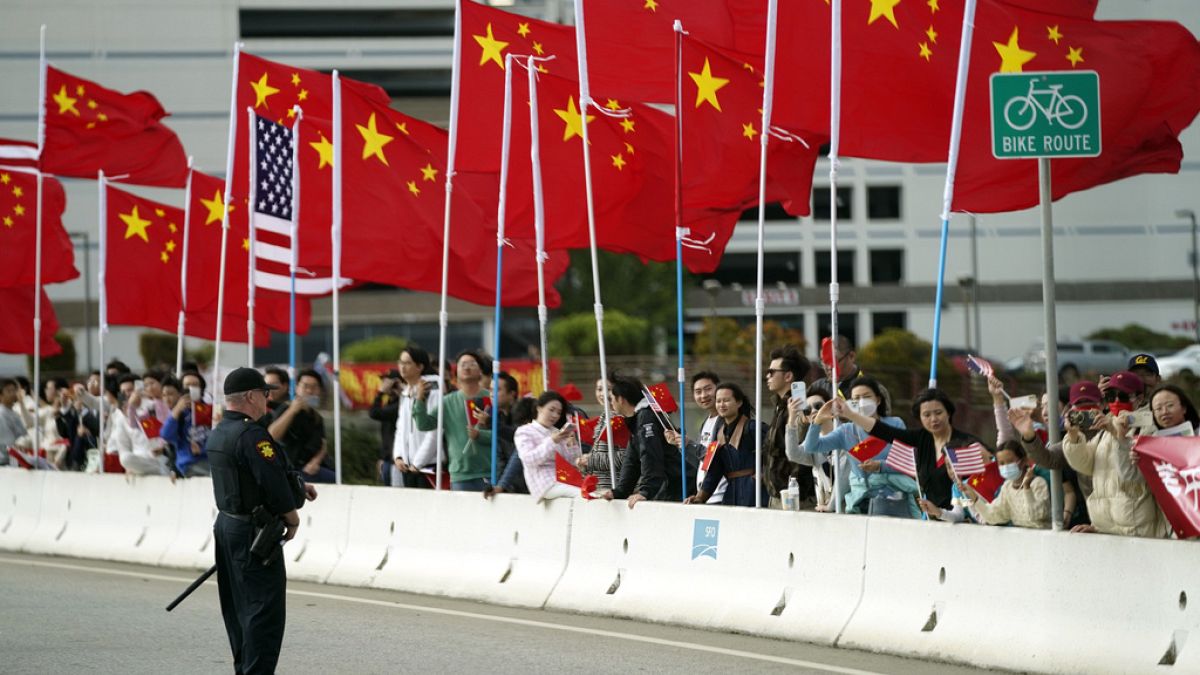Chinese President Xi Jinping has arrived in San Francisco for a much-anticipated China-US summit with his American counterpart Joe Biden.
US President Joe Biden and his Chinese counterpart Xi Jinping arrived in San Francisco on Tuesday as the two leaders made their final preparations for their first engagement in a year.
Biden expressed hope the talks would help put a shaky US-China relationship - marked by sharp differences over the last year - in a better place. The two leaders arrived in the city to be greeted by hundreds of demonstrators who lined up along their motorcade routes, waving Chinese, Taiwanese and Tibetan flags as well as signs in support of and opposition to the Chinese leader.
Biden said his broad goal was to get Washington and Beijing "on a normal course corresponding" once again even as they have sharp differences on a number of issues.
“Being able to pick up the phone and talk to one another if there’s a crisis. Being able to make sure our militaries still have contact with one another,” Biden told reporters at the White House. “We’re not trying to decouple from China, but what we’re trying to do is change the relationship for the better.”
The State Department announced on Tuesday that the countries, which are the world's two biggest polluters, have agreed to “pursue efforts to triple renewable energy capacity globally by 2030," an effort to step up wind, solar and other renewable energy.
The announcement came after John Kerry, Biden’s climate envoy, met earlier this month with his Chinese counterpart, Xie Zhenhua, at the Sunnylands estate in southern California for talks.
Complicated US-Chinese relationship
The long complicated US-Chinese relationship has come under heavy strain over the last year, with Beijing bristling over new US export controls on advanced technology; Biden ordering the shooting down of a Chinese spy balloon; and Chinese anger over a stopover in the US by Taiwanese President Tsai Ing-wen earlier this year, among other issues. China claims the island as its territory.
Biden will also be looking to use this week’s summit of Asia-Pacific leaders to demonstrate the US can focus on the region even as it grapples with a multitude of foreign and domestic policy crises.
The White House wants to demonstrate that Biden can remain focused on the Pacific while also trying to keep the Israel-Hamas war from exploding into a broader regional conflict and to persuade Republican lawmakers to continue to spend billions more on the costly Ukrainian effort to repel Russia’s nearly 21-month old invasion.
White House officials say they recognise that fellow APEC nations want to see better dialogue between the US and China because it reduces the risk of regional conflict. At the same time, they also know that others in the region are concerned that the Pacific is too often seen through a prism in which the dominant power centres in Washington and Beijing make decisions for the region without engagement from less powerful nations.
US strong economy
Biden enters the Xi meeting feeling buoyed by the US economy’s strong performance. While the majority of US adults believe the economy is weak, Biden has managed to prove wrong a large number of economists who predicted that millions of layoffs and a recession might be needed to bring down inflation. The Labor Department said on Tuesday that consumer prices rose at an annual pace of 3.2% annually, down from a June 2022 peak of 9.1%. Meanwhile, employers keep hiring and the unemployment rate has held below 4% for nearly two years.
Beijing released economic data last month that shows prices falling due to slack demand from consumers and businesses. The International Monetary Fund recently cut growth forecasts for China, predicting economic growth of 5% this year and 4.2% in 2024, down slightly from its forecasts in July.
